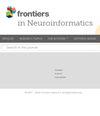针对分布式神经成像数据的高效联合学习
IF 2.5
4区 医学
Q2 MATHEMATICAL & COMPUTATIONAL BIOLOGY
引用次数: 0
摘要
神经成像技术的最新进展促使科学界更多地共享数据。然而,科研机构往往出于对研究文化、隐私和责任的考虑,对其数据保持控制。这就对能够分析合并数据集而无需在实体间传输实际数据的创新工具产生了需求。为了应对这一挑战,我们提出了一种分散式稀疏联合学习(FL)策略。这种方法强调稀疏模型的本地训练,以促进此类框架内的高效交流。通过利用模型稀疏性,并在训练阶段有选择地在客户端站点之间共享参数,我们的方法大大降低了通信开销。在处理较大的模型和适应不同站点的不同资源能力时,这一优势会变得越来越明显。我们通过对青少年大脑认知发展(ABCD)数据集的应用,证明了我们方法的有效性。本文章由计算机程序翻译,如有差异,请以英文原文为准。
Efficient federated learning for distributed neuroimaging data
Recent advancements in neuroimaging have led to greater data sharing among the scientific community. However, institutions frequently maintain control over their data, citing concerns related to research culture, privacy, and accountability. This creates a demand for innovative tools capable of analyzing amalgamated datasets without the need to transfer actual data between entities. To address this challenge, we propose a decentralized sparse federated learning (FL) strategy. This approach emphasizes local training of sparse models to facilitate efficient communication within such frameworks. By capitalizing on model sparsity and selectively sharing parameters between client sites during the training phase, our method significantly lowers communication overheads. This advantage becomes increasingly pronounced when dealing with larger models and accommodating the diverse resource capabilities of various sites. We demonstrate the effectiveness of our approach through the application to the Adolescent Brain Cognitive Development (ABCD) dataset.
求助全文
通过发布文献求助,成功后即可免费获取论文全文。
去求助
来源期刊

Frontiers in Neuroinformatics
MATHEMATICAL & COMPUTATIONAL BIOLOGY-NEUROSCIENCES
CiteScore
4.80
自引率
5.70%
发文量
132
审稿时长
14 weeks
期刊介绍:
Frontiers in Neuroinformatics publishes rigorously peer-reviewed research on the development and implementation of numerical/computational models and analytical tools used to share, integrate and analyze experimental data and advance theories of the nervous system functions. Specialty Chief Editors Jan G. Bjaalie at the University of Oslo and Sean L. Hill at the École Polytechnique Fédérale de Lausanne are supported by an outstanding Editorial Board of international experts. This multidisciplinary open-access journal is at the forefront of disseminating and communicating scientific knowledge and impactful discoveries to researchers, academics and the public worldwide.
Neuroscience is being propelled into the information age as the volume of information explodes, demanding organization and synthesis. Novel synthesis approaches are opening up a new dimension for the exploration of the components of brain elements and systems and the vast number of variables that underlie their functions. Neural data is highly heterogeneous with complex inter-relations across multiple levels, driving the need for innovative organizing and synthesizing approaches from genes to cognition, and covering a range of species and disease states.
Frontiers in Neuroinformatics therefore welcomes submissions on existing neuroscience databases, development of data and knowledge bases for all levels of neuroscience, applications and technologies that can facilitate data sharing (interoperability, formats, terminologies, and ontologies), and novel tools for data acquisition, analyses, visualization, and dissemination of nervous system data. Our journal welcomes submissions on new tools (software and hardware) that support brain modeling, and the merging of neuroscience databases with brain models used for simulation and visualization.
 求助内容:
求助内容: 应助结果提醒方式:
应助结果提醒方式:


